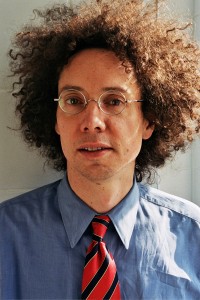 In 2011, Malcolm Gladwell changed the way we look at success. His book “Outliers” convinced us that success doesn’t happen by accident. His examination of hockey players and computer programmers and musicians helped us to understand that mastery is necessary for success. This idea, that it takes 10000 hours to become a master in a given discipline, wasn’t necessarily new. However, Malcolm popularized the concept. And so it began. Musicians and teachers and athletes all began to change the way they do things. The theory is alluring, because it infers that the difference between you and Bill Gates is only 10000 hours.
In 2011, Malcolm Gladwell changed the way we look at success. His book “Outliers” convinced us that success doesn’t happen by accident. His examination of hockey players and computer programmers and musicians helped us to understand that mastery is necessary for success. This idea, that it takes 10000 hours to become a master in a given discipline, wasn’t necessarily new. However, Malcolm popularized the concept. And so it began. Musicians and teachers and athletes all began to change the way they do things. The theory is alluring, because it infers that the difference between you and Bill Gates is only 10000 hours.
In his book, Malcolm begins his convincing with a story about Canadian hockey players. In Canada, youth hockey players who have birthdays near the registration cutoff date end up being bigger and stronger than those with birthdays later in the year. Bigger and stronger and faster players easily make the elite teams. Those who made the elite teams get better training, coaching and completion. Players who have had better training, coaching and competition ultimately get to 10000 hours first.
Unfortunately, most success hungry readers missed the point. Malcolm Gladwell, if you read more than the cliff notes, actually was advocating for multiple hockey leagues that had multiple cutoff dates. If his model was used, we would generate many more master hockey players than we produce now. But this isn’t what teachers, coaches, educators and (most of all) parents heard.
What parents heard about the 10000 hour rule, mostly from their friends of friends who actually spent the time reading the book, was that older kids do better. They heard that older kids are more successful. And because they had no control over school cutoff dates, they did what they thought was prudent. They held their kids back.
 “Holdbacks”, as they are so ingeniously called, are children who start school later than they should or who are held back at a certain grade. The majority of these kids haven’t had academic or athletic difficulty. They are simply held back to give them the perceived Malcolm Gladwell advantage.
“Holdbacks”, as they are so ingeniously called, are children who start school later than they should or who are held back at a certain grade. The majority of these kids haven’t had academic or athletic difficulty. They are simply held back to give them the perceived Malcolm Gladwell advantage.
Parents, using their competitive wisdom, are hoping to gain athletic and academic advantages. And why not? If you’re 13 and competing against 11 year olds, how can you possibly lose? Unfortunately, you can.
Holding a child back does give that child some early advantages, but that advantage is mostly to satisfy the parents. Most studies confirm that by 8th grade any competitive advantage from holding kids back has faded. And even if the advantage still existed past 8th grade, parents still misinterpret the concept.
Getting to 10000 hours in anything doesn’t require an advantage, it requires 10000 hours of hard work. 10000 hours of hard work requires 3 hours of practice every day for approximately 10 years. Kids, who have that early competitive advantage, would rarely spend 3 hours a day practicing for 10 years.
I know several people who have held their children back for this reason. Most of them are straight A students and many of them dominate their youth athletics. However, by the time they get to high school and the advantage has diminished, they rarely continue their dominance. Why?
Practicing 3 hours a day for 10 years is difficult. And it’s nearly impossible for individuals who are already at the top. Think of it like this. Have you ever received a bad grade on a test? What did you do immediately after getting that “future coal-miner” grade? After finding out you couldn’t drop the class and fuming because you missed the deadline, you studied.
Would you have had the same reaction if you received an “A?” Of course not! That “A” means you don’t have to open that book again, until the day before the next exam. How many teams practice after winning a championship? In other words, those who get early “A’s” probably don’t and won’t study for 3 hours a day for 10 years. Parents, who believe their children are athletic superstars, probably assume they don’t have to practice for 3 hours a day for 10 years.
Many of the students in my son’s 6th grade class will turn 13 before he even turns 12. They cruise home after school comforted by the foresight of their parents. While they spend time at Disney Land basking in the glow of their own radiance, he’ll be in the midst of practicing and studying 3 hours every day on his way to 10000 hours.
I’m so glad we didn’t hold him back by holding him back.
Slightly different,
doc mu
